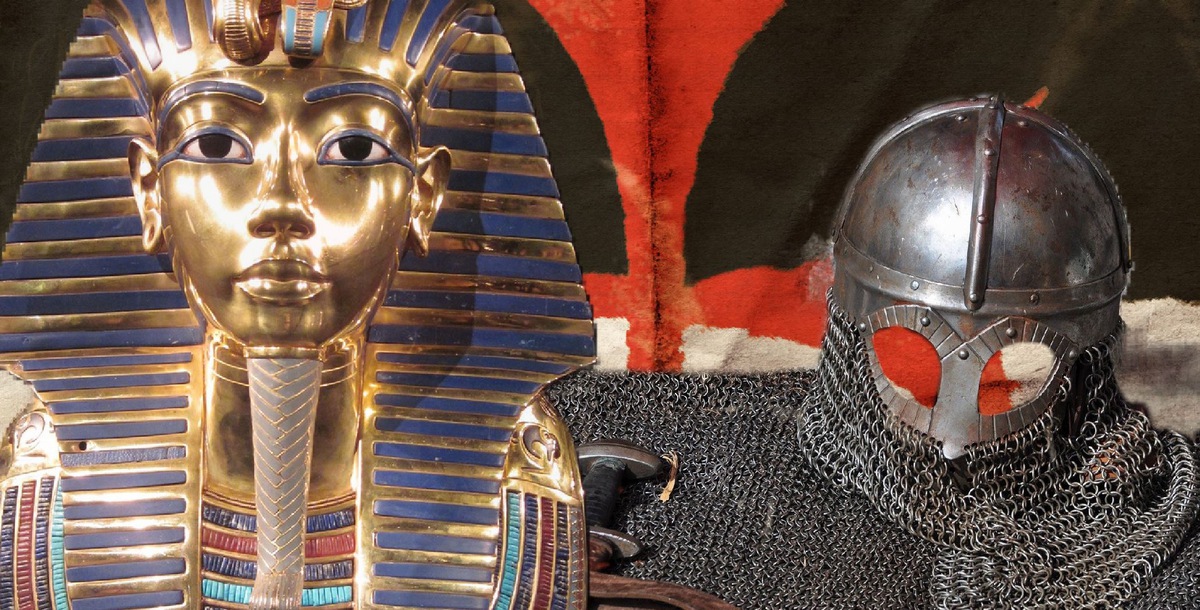2019 has been a banner year for history, especially for those in the field — archaeologists of all stripes, historians, war experts and more had a annus mirabilis– a miraculous year, thanks to some innovative technology that they previously couldn’t access, and good, old fashioned elbow grease that brought some amazing finds to light.
From a shipwreck in the Arctic to Crusader tunnels, from King Tut’s tomb to woolly mammoths, all of this was at the fingertips of historians, all of whom were dazzled by these developments. Here’s a roundup of what made the history books — and headlines — during 2019.
The wreck of the HMS Terror
The long lost ship was finally made accessible thanks to underwater drones, that went down to the ship and captured images of rust-laden artifacts for the first time in 174 years. (The video is available for viewing on You Tube). The ship went out to find the elusive Northwest Passage, helmed by Sir John Franklin, but he and his crew of almost 130 died, thanks to cold and starvation. They tried to ward off the latter by resorting to cannibalism, but to no avail; none of the men were ever seen or heard from again.
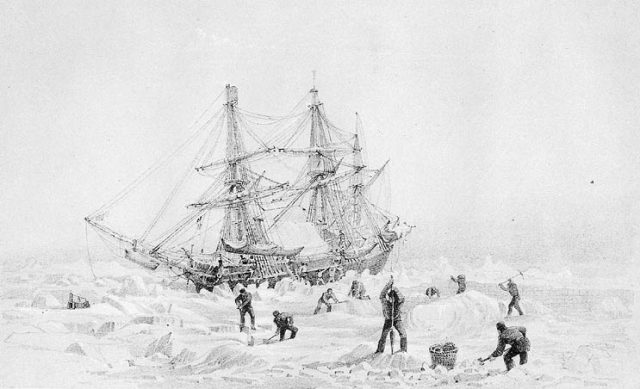
A Viking Woman Recreated
In Norway, the 1,000 year-old remains of a female Viking were found, along with weapons, in her burial site. Scientists were to able to do a 3D recreation of her which showed the extent of her combat experience. She looks eerily modern, right down to her long hair, and it gave us evidence that to a certain extent women participated in battle and provides a glimpse of what some women achieved back then — right beside their male counterparts.

Human DNA Dates Back To Botswana
Although some scientists aren’t sure of this development in DNA research, all agree that we evolved from hominids who lived in Africa. This theory about this history came to the fore in 2019 thanks to a team led by Vanessa Hayes of the Garvan Institute of Medical Research in Sidney, Australia. Using mitochondrial DNA, it claims to pinpoint the exact location of early human beginnings to an area in Botswana, according to National Geographic. Specifically it refers to the Makgadikgadi–Okavango palaeo-wetlands, commonly known as the Kalahari section of northern Botswana. This is where they believe the earliest modern human genetic relationships began, even though the oldest human bones ever found were in eastern Africa.
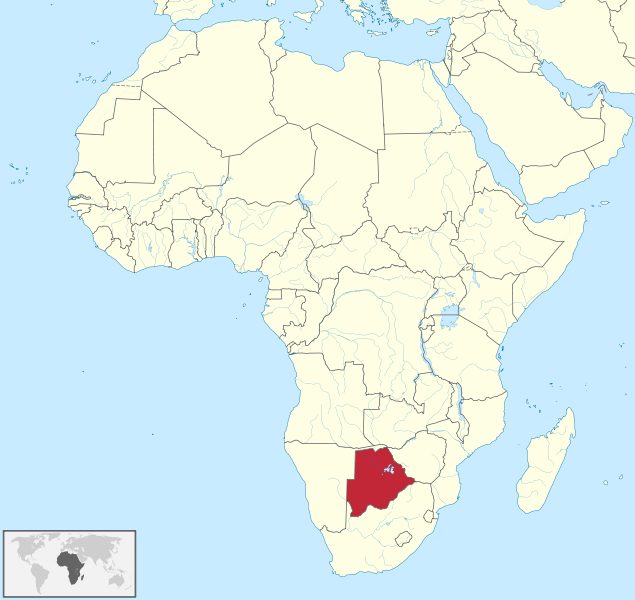
King Tut’s Tomb Is Renewed
It took 10 years of hard work, scrubbing away decay and restoring gold in several layers in intricate detail, but the restoration of King Tutankhamen’s tomb is finally complete. The tomb had been subject to the harsh Egyptian sun while on display, to say nothing of the sweat and moisture left by millions of tourists, but the ancient tomb is now back in the Egyptian Museum in Cairo, ready for exhibition. A date for the grand opening has yet to be announced, but it will, officials say, be in early 2020.
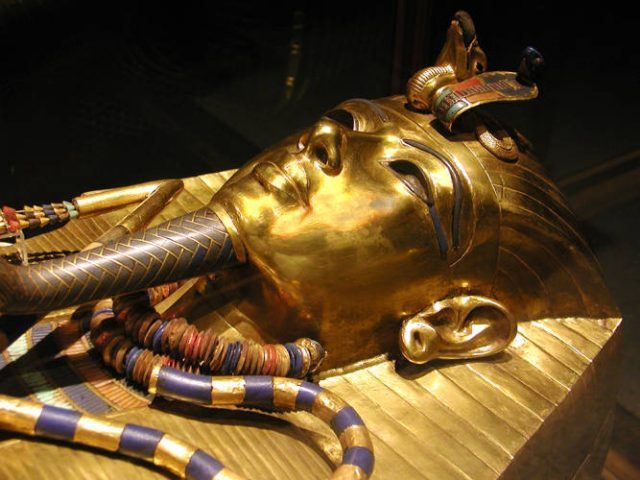
Crusader Tunnels Discovered In Israel
This year archaeologists found 800 miles of tunnels under the city of Acre, in Israel, that are linked to the Knights Templar, who were described by one researcher as “warrior monks (that) are the stuff of legend,” as is the gold treasure they supposedly hoarded. The legend say that the monks used the ancient tunnels to travel in secret to carry out their deeds, and that work on the tunnels may lead scientists to the mysterious gold. At the time of this writing, no date has been announced on when excavation of the tunnels may begin, but a new documentary series by National Geographic, entitled Lost Cities, was launched with an episode on this discovery.

Oldest American DNA Found In Native Man
It’s not surprising that the DNA of a Blackfoot man, who lives near Butte, Montana, has found to have the oldest DNA in America, according to the lab that tested him, CRI Genetics. Scientists have long believed that Native Americans date back thousands of years, when people from Siberia traversed what we now call the Bering Strait to settle in the United States. However, many First Nations people believe they date back further than that, even, saying their ancestors have been on American soil since “time immemorial,” as one expert called it. The man was found to have DNA that dated back 55 generations, or about 17,000 years!
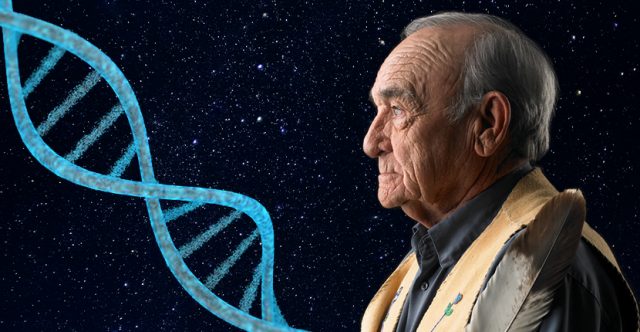
D-Day Audio Recording Discovered
A Florida researcher, Bruce Campbell, had no idea the tapes in his basement were so historically significant, until he finally heard them in 2019. Voices from the landing boats at D-Day beaches are audible, and though it took a while for Campbell to realize what the tapes contained, when he did he donated them to the National D-Day Memorial in Virginia. Also on the tapes is the voice of famed broadcaster Edward R. Murrow, who covered the war for several radio stations back home.

Woolly Mammoth Remains and Traps Found In Mexico
Scientists discovered the remains of at least 14 enormous woolly mammoths caught in man-made traps, in pits, in Tultepec, Mexico this year. Each pit is approximately 82 feet across, and scientists say that they found clear evidence that the creatures were actually hunted. Before this find, archaeologists and anthropologists believed that man only scavenged woolly mammoths when one was sick, or hurt, because they were so massive — up to six tons, and they stood as high as 11 feet. But this find proved that humans made calculated hunting attempts at these giant beasts. Most mammoths went extinct about 10,000 years ago; the site in Mexico is thought to be approximately 15,000 years old.
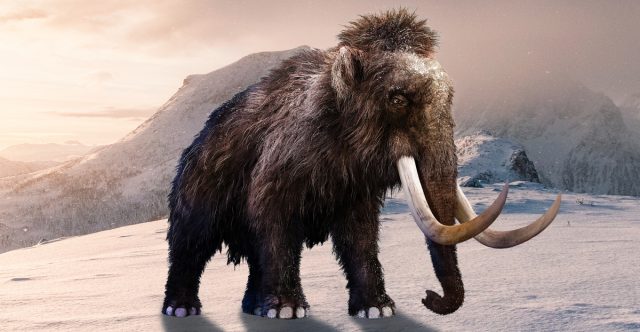
These are just 10 of the headline making, jaw dropping, amazing events, discoveries and advances talked about in 2019 in the field of history. No doubt the year ahead has much more in store; more in science, more in history, more in archaeology, and maybe other fields we haven’t even mentioned yet.
Related Article: Incredible Historical Coincidences – Too Strange to be True?
Who knows where the first big news will come from — below the sea, under the ground, in the world of antiquities or perhaps the world of nature? No one can predict that, but we can say one thing with certainty: during the first week of 2020, some bigs news will break on one or all of those fronts. 2019 won’t be the only great year for history. Be sure to stay tuned, and keep reading!
